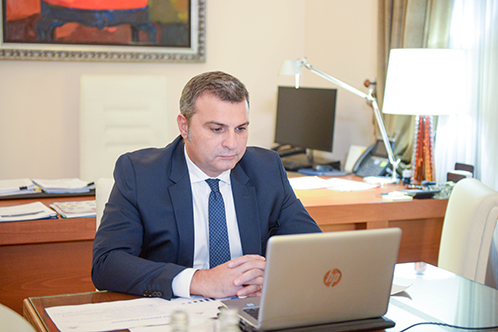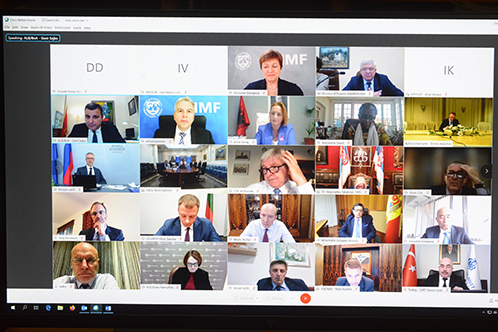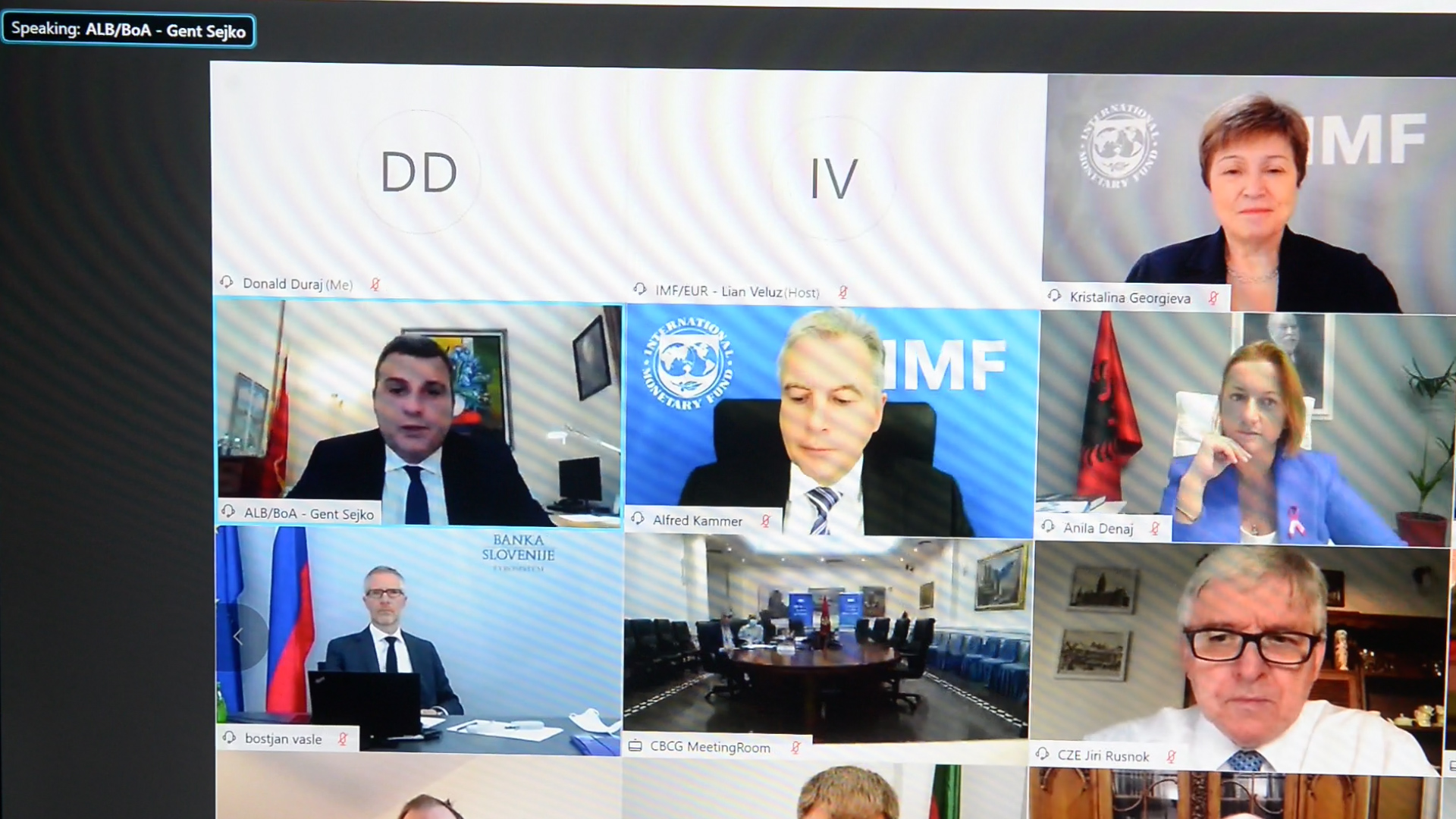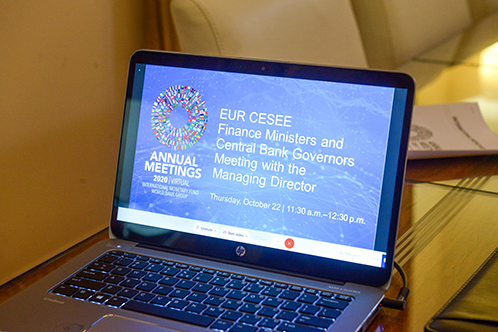BANK OF ALBANIA
PRESS RELEASE
Governor Sejko attends the CESEE meeting of Finance Ministers and Central Bank Governors, with the International Monetary Fund Managing Director, Ms Kristalina Georgieva
Publication date: 23.10.2020
On 22 October 2020, the Governor of the Bank of Albania, Mr Gent Sejko, in the capacity of the Governor of the Bank of Albania in the International Monetary Fund (IMF), attended the virtual meeting of the Ministers of Finance and Governors of the Central Banks of the Central, Eastern and South-eastern European (CESEE) countries with the Managing Director of IMF, Ms. Kristalina Georgieva, in the framework of the Annual Meetings of (IMF) and the World Bank Group (WB).

The purpose of this meeting is to discuss: (i) policy developments and measures taken by countries to mitigate the impact of the pandemic on their economy and population; and (ii) the policy strategies needed to: reduce the impact of the shock; ensure the recovery; and strengthen resilience; while also addressing long-term challenges.
The IMF Managing Director, Ms. Kristalina Georgieva welcomed and opened the proceedings of the meeting. Ms. Georgieva said that due to the COVID-19 pandemic, developed and emerging economies were hit hard in 2020. She added that the nature of the pandemic shock requires constant support by policies, depending on the space that these policies have in the countries of the region. Policy-makers need to find ways to continue to support the economy as they prepare for the post-pandemic world and address long-term challenges.

Following, Mr. Alfred Kammer, the Director of the European Department at the International Monetary Fund, presented the economic perspective of the European region, commended the timely taken unprecedented measures from each country, and highlighted the importance of international cooperation for effective regional and global solutions.
During this meeting, two presentations were held that aimed to share the experiences of central banks and fiscal authorities in coping with this crisis. Governor Sejko was elected to present the outlook of the central banks. In this regard Mr Sejko presented the experience and challenges faced by institutions and policy-makers in Albania while dealing with this situation.

The Governor stated that at a global level, the economic perspective is improving from the contraction caused by Covid-19. However, multiple challenges remain for policy-makers, such as the limited room for economic policies to react in the future, the long-term impact of this shock on potential growth rates, as well as the negative impact it may have on the process of economic integration and policy coordination at global level.

Focusing on the situation in Albania, Governor Sejko emphasised that the earthquake of 2019 and the pandemic caused a double shock within a short period of time. In response, the Bank of Albania took immediate measures: lowering the policy rate and ramping up liquidity injections; temporary regulatory facilitation of payment deferrals and loan restructuring; freezing the dividend payments in the banking sector; as well as, forfeiting the fees on interbank transactions fees in the payment systems operated by BoA.
In addition, all public actors in the country have taken coordinated and timely economic measures, in fiscal, monetary and macro-prudential terms, mitigating thus the negative effects of the pandemic. Governor Sejko also emphasised the role of the Rapid Financing Instrument (RFI), granted to Albania by the IMF at the beginning of the pandemic, which supported our fiscal stimulus, alleviated its impact on domestic financial markets and signalled the country's ability to access various sources of funding.
Moreover, the Governor stressed that when addressing the situation created by Covid-19, policy-makers were able to identify key elements for successfully managing the crisis, such as the importance of timely unprecedented measures, careful policy coordination, cooperation and investment in monetary and financial stability in order to achieve a sustainable and long-term economic growth.

 Linkedin
Linkedin
 Twitter
Twitter
 Youtube
Youtube
 Facebook
Facebook
 Flickr
Flickr
 RSS
RSS
 Subscribe
Subscribe
 Feedback
Feedback